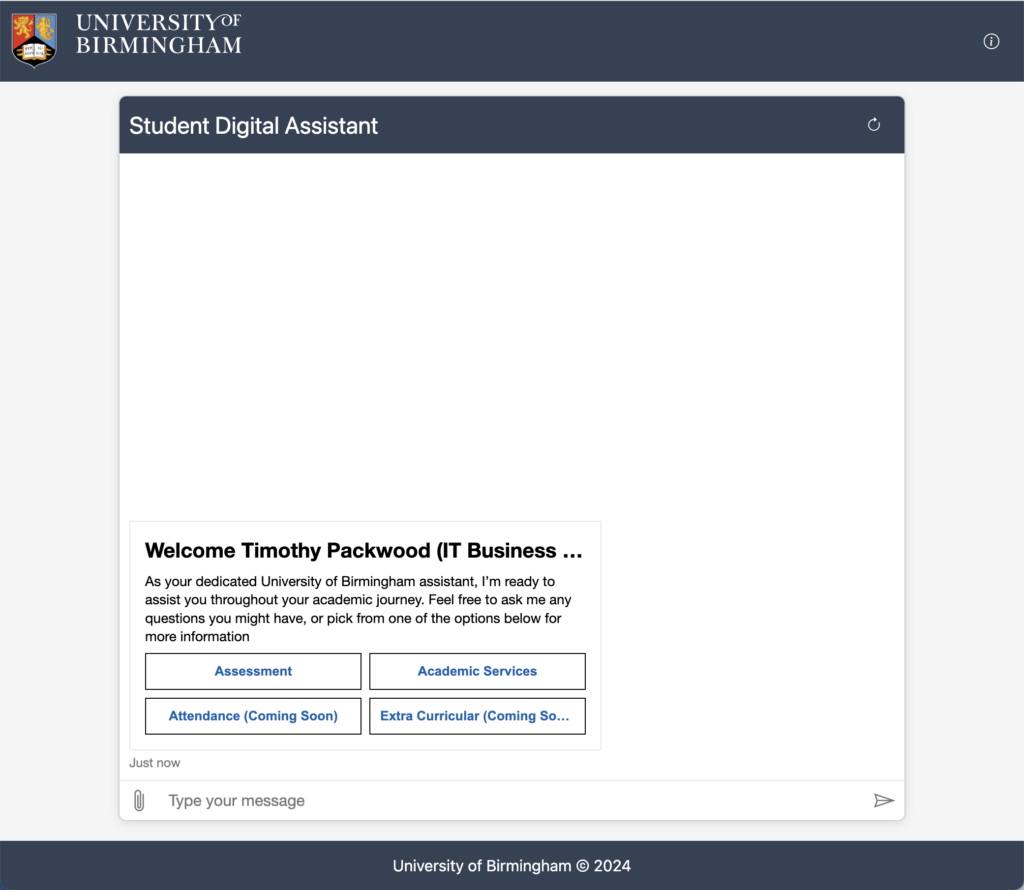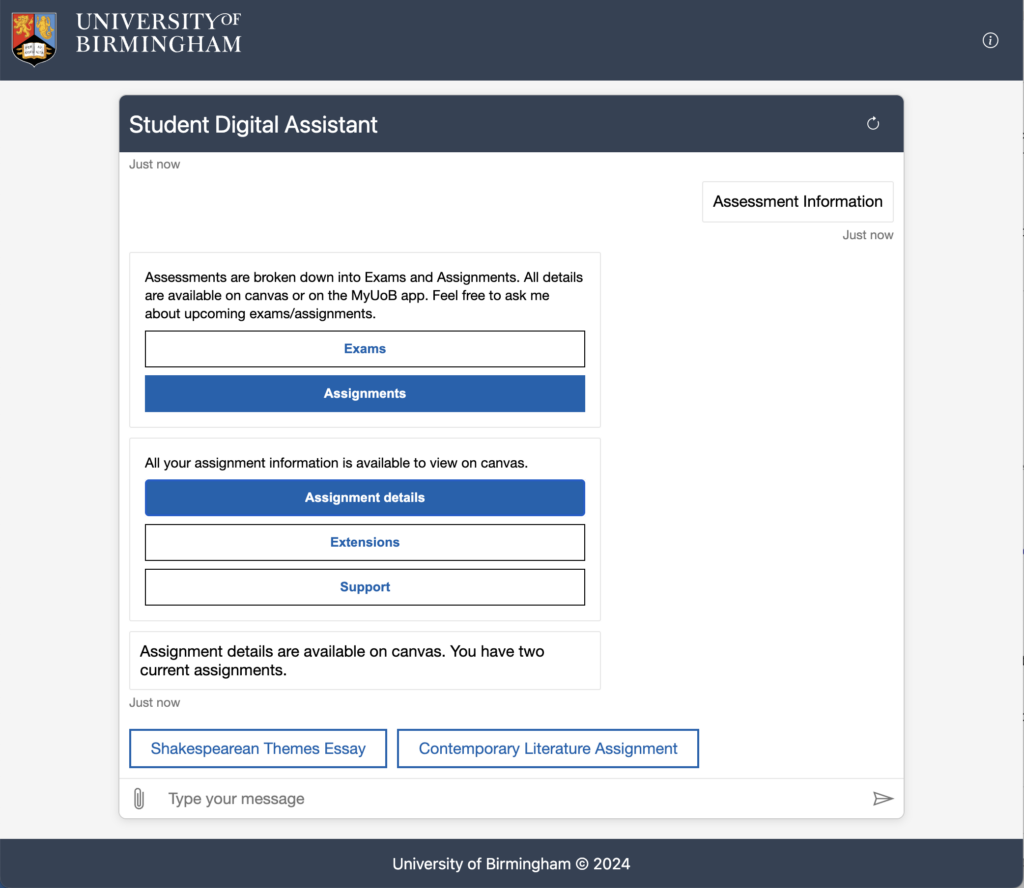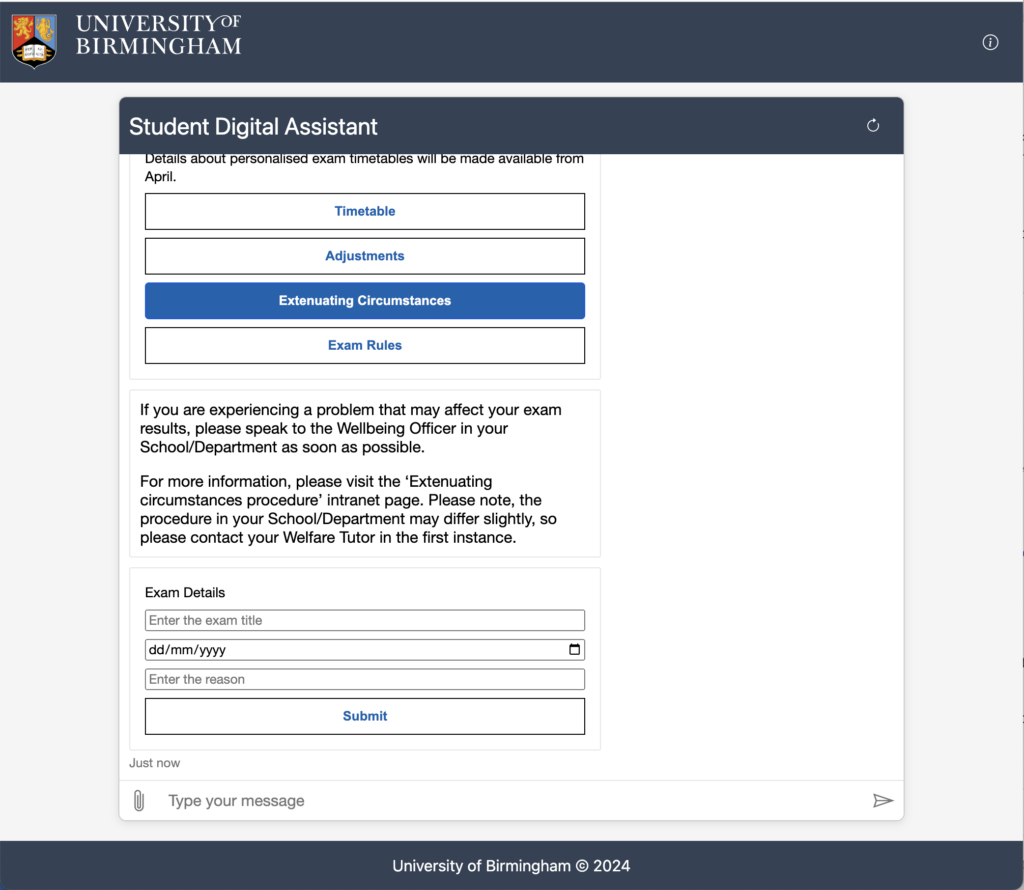As student numbers continue to grow, the challenge of maintaining or even enhancing the student experience becomes more emphasised. With professional services and support staff unlikely to see significant growth in headcount, the question is, how do we continuously improve student experience and ultimately deliver more with less? Technology might be part of the answer.
To support the growth in student populations many universities are investing in virtual assistants and automation. A set of technologies, usually powered by AI, that can respond to student questions and queries in natural language, at any time of day, on almost any device a user has.
What impact might a virtual assistant have?
A virtual assistant for students can:
- Answer questions, simple or complex.
- Simplify interactions with various support teams.
- Streamline and automate tasks.
- Be available around the clock.
- Decrease the number of basic support emails for many teams.
- Free up staff to focus on tasks that improve the student experience
To become a top 50 university, improving the student experience is crucial, as it directly impacts our National Student Survey (NSS) scores. A well-functioning virtual assistant could play a role in boosting these scores by providing an enhanced support experience to students.
A proof of concept
To explore the potential use and implications of a virtual assistant the IT Innovation team have developed a proof of concept that can handle basic question-and-answer requests, manage appointments, understand user contexts and initiate various processes.
The proof of concept is currently available to staff members responsible for student support teams in academic colleges. Its designed to show the art of the possible and encourage teams to consider developing the knowledge, data and process structures required to power a virtual assistant.

The prototype focuses on four key areas: assessment, academic services, attendance, and extracurricular activities. The initial release covers the first two areas. For assessment-related queries, the prototypes provides information about exams, such as timetables, adjustments, extenuating circumstances, and regulations, along with assignment details like due dates, word counts, extensions, and available support.

In terms of services, the prototype covers the careers network by offering feedback on applications, scheduling careers appointments, and highlighting upcoming events. It also provides details about library services, including opening hours, available services, and information on the academic skills centre.

Foundational Challenges
To take full advantage of a virtual assistant the university needs to streamline its knowledge management, case support, and communication management processes. Without investing in the digital services available by support teams, the capabilities of virtual assistants will be limited.
Right now, hundreds of university teams use hundreds of different processes with varying levels of sophistication. Many rely on personal knowledge and include manual steps. For a virtual assistant to work well, the university must strengthen its digital services baseline.
Example investments might include:
- Using a single platform for handling support requests, automating processes, and storing knowledge.
- Using a single CRM system across the university to manage and tailor communications.
- Providing standard APIs for important student information like programs and courses.
The IT Innovation team is committed to advocating for the digital infrastructure needed to support a university-wide virtual assistant, and will encourage stakeholders to engage with and contribute to future prototypes and innovations that can enhance teaching, learning, and administrative processes.
Future Prototypes and Discoveries
The IT Innovation Team is always on the lookout for challenges that can add value to the university. If you have an idea for a technology that supports teaching, learning, or related administration, please reach out to the team. We are eager to explore new and interesting problems to solve.
